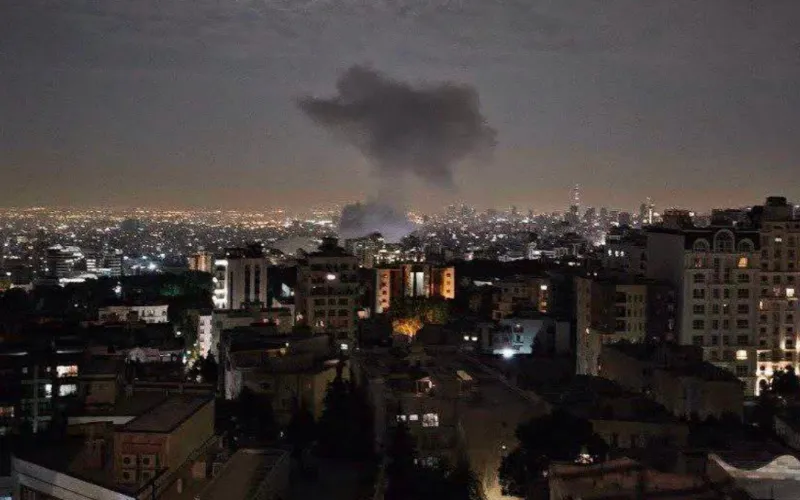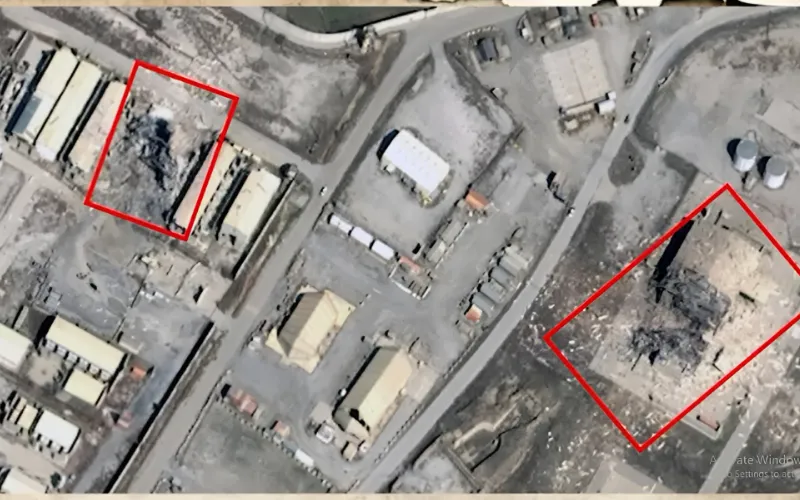A WAR of words broke out last week between India and Pakistan triggered by New Delhi’s belligerent statements.
Threats and bellicose statements by Indian officials have continued sporadically after the four-day conflict between India and Pakistan in May. But the spate of recent utterances by India’s political and military leaders struck a more ominous note and has made the already fraught environment more tense.
Last week, three provocative statements from Indian officials raised the temperature between the two countries. The most egregious remarks were by the Indian army chief Upendra Dwivedi, who said Pakistan will face erasure from the world map if it doesn’t stop cross-border terrorism. He warned that India won’t show the “restraint” it did during ‘Operation Sindoor’.
He also said India “can cross any border whenever necessary”. He asked his troops to stay in readiness as an “opportunity may come soon”. Subsequently, India’s defence minister Rajnath Singh accused Pakistan of expanding its military infrastructure in the Sir Creek sector, saying if Pakistan dared to act here “the reply will be so strong that it will change both history and geography”. Sir Creek is a 96 kilometre-long tidal estuary in the Rann of Kutch, disputed by the two neighbours. It has been the subject of inconclusive negotiations over the maritime boundary, the last such talks taking place in 2012.
On Oct 5, India’s air force chief Amar Preet Singh came up with the canard that India had shot down nine to 10 Pakistani fighter jets in the May clash, including two F-16s. He reiterated the threat that the Indian air force had “the capability to strike deep inside any of the [terrorist] hideouts [in Pakistan] with absolutely accurate targeting” and could do that anytime.
Pakistan pulled no punches in its reaction to these statements. A statement issued after a meeting of the top military brass, presided over by army chief Field Marshal Asim Munir, vowed to give a “swift retributory response” to any “new normal” that the Indian leadership might be conjuring up.
Earlier, the military’s media affairs office slammed the “delusional, provocative and jingoistic” statements from the highest echelons of the Indian security establishment and cast them as a “renewed attempt at fabricating a pretext for aggression”. The Inter-Services Public Relations statement warned any future conflict could lead to “cataclysmic devastation” as Pakistan would respond without any restraint. Taking aim at the Indian army chief’s threat, it said those talking about “erasure” should know “the erasure would be mutual”.
Recent Indian statements may just be empty threats but Pakistan cannot lower its guard.
The questions raised by the latest round of Indian threats and escalatory rhetoric are what is driving them at this point and how seriously should they be taken. One explanation of the aggressive narrative is that it is aimed at the domestic audience, especially the ruling party’s Hindu base. Whipping up anti-Pakistan sentiment is a time-old tactic used by the BJP for electoral gain. With crucial state elections in Bihar drawing close and due early next year in West Bengal, the Narendra Modi government, under fire from the opposition for its conduct in the May conflict, is seeking to shore up its shaky position. This may be one aim, but not the only one.
The Indian establishment is still smarting from Pakistan gaining the decisive upper hand in the May conflict as epitomised by the shooting down of several Indian aircraft. Thus such rhetoric might be a way to obfuscate that outcome. But it seems more than that.
The reputational damage India suffered both at home and internationally has driven the motivation to avenge that loss of face. From this perspective and because Indian leaders keep hinting at another ‘round’ with Pakistan, some form of Indian incursion or aggressive action cannot be ruled out, especially as Indian leaders insist the rules of engagement and battle lines have irreversibly changed.
Pakistani officials do not underestimate this possibility but believe the Indians may be deterred from embarking on another adventure by calculations such as Pakistan’s warnings of an even more muscular counter-response and changed regional and global dynamics.
To be sure the international environment is far from being permissive for any Indian military action against Pakistan. Islamabad’s strengthened ties with the US, India’s strained relations with Washington, China’s unflinching diplomatic and military support for Pakistan and the Pakistan-Saudi strategic mutual defence pact have reshaped the geostrategic landscape to New Delhi’s detriment. If India received virtually no international support for its military strikes on Pakistan in May, it can hardly count on it in a significantly transformed environment. But a counter-argument is that India may want to test the limits of the possible in a global environment where the use of force — hard power — has become the ‘new normal’ and thus more ‘acceptable’ than ever before.
Pakistan in any case cannot afford to leave anything to chance or lower its guard. There should be no distraction from focusing on the eastern border by any military commitments it may be considering in the Middle East under President Trump’s Gaza ‘peace plan’. The country’s own security should take precedence over deploying military assets elsewhere, which in any case exposes Pakistan to other risks.
Beyond official Indian statements, it is instructive to read comments in the Indian media by foreign policy experts and former diplomats as they reveal deep concerns and worry about India’s international isolation and loss of diplomatic initiative to Pakistan. An analysis by India Today saw Pakistan “redrawing its strategic playbook”, forging new alliances and carrying out a recalibration that underscored a shifting regional order. This had important implications for India and would test its resolve.
Others fret over ‘Trump’s tilt to Pakistan’, with some construing this as a pressure tactic against India. Troubled by the loss of ally Bangladesh, some analysts have warned of an “alignment of adversarial powers around India”. The opposition Congress party has repeatedly said India is diplomatically isolated, decried the government for fraught Indo-US relations and for the loss of global influence.
Domestic pressure on the Indian government could compel it to act recklessly. But conversely, the uncertain outcome of military action against Pakistan could urge caution. In any event Pakistan must stay on high alert and be ready for all eventualities.
The writer is a former ambassador to the US, UK and UN.
Published in Dawn, October 13th, 2025





